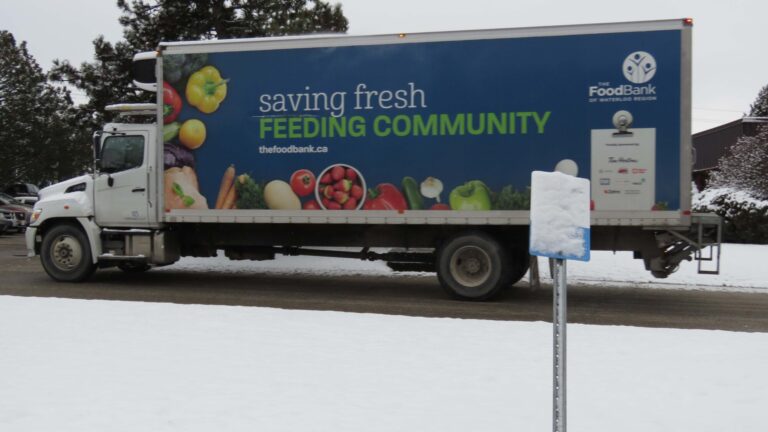Food security is not guaranteed for all in Waterloo Region. The rise in inflation, the housing crisis and increase in food prices, among many other factors all present challenges to a growing number of its residents.
With the rising cost of living, budgets are tight and food is often the flexible expense. Food programs across different local communities are seeing increased demands. During 2023, The Food Bank of Waterloo Region supported 58,668 individuals.
The Food Bank of Waterloo Region released their 2022-2023 Impact Report at the end of 2023. The report stated that one in ten households receives monthly food assistance.
The report states that in 2023, more than 7,500 households accessed a food assistance program for the first time. This represents a 113 per cent increase when compared to the organization’s previous year.
On Dec. 13, Waterloo Regional Council voted to increase The Food Bank´s grant to $1.5 million for its 2024 budget. The motion passed unanimously receiving a total of 16 votes in favour. Regional Council will finalize the 2024 budget in February.
“This increase will enable us to continue our mission to ensure no one in our community goes hungry,” Kim Wilhelm, interim CEO of the Food Bank of Waterloo Region, said.
“With this funding, we have an opportunity for our services to reach more households in our community, and meaningfully impact our residents, reducing food insecurity across Waterloo Region,” she said.
Wilhelm said that one of the big issues is that social assistance programs like Ontario Disability Support Program or Ontario Works are not providing enough money for people to cover their costs.
The Food Bank has grown since its inception, when it was meant to address the needs of a recession. with the communities to help alleviate food insecurity. It was inspired by the American food bank movement. The first proposal of the organization was developed by the Mennonite Central Committee, food industry and non-profit organizations, such House of Friendship, Salvation Army, Anselma House and St. John’s Soup.
Food security is more than just having food to eat, it is about having consistent access to healthy and nutritious food that is culturally appropriate and meets a person’s dietary needs to live a healthy and happy life. That is important because not having enough healthy food to eat on a regular basis can have detrimental effects on people life as well as in the ability to function at their best.
Residents can support the Food Bank by donating money, food or volunteering. For more information, visit thefoodbank.ca Find them on Instagram @FoodBankWatReg.

